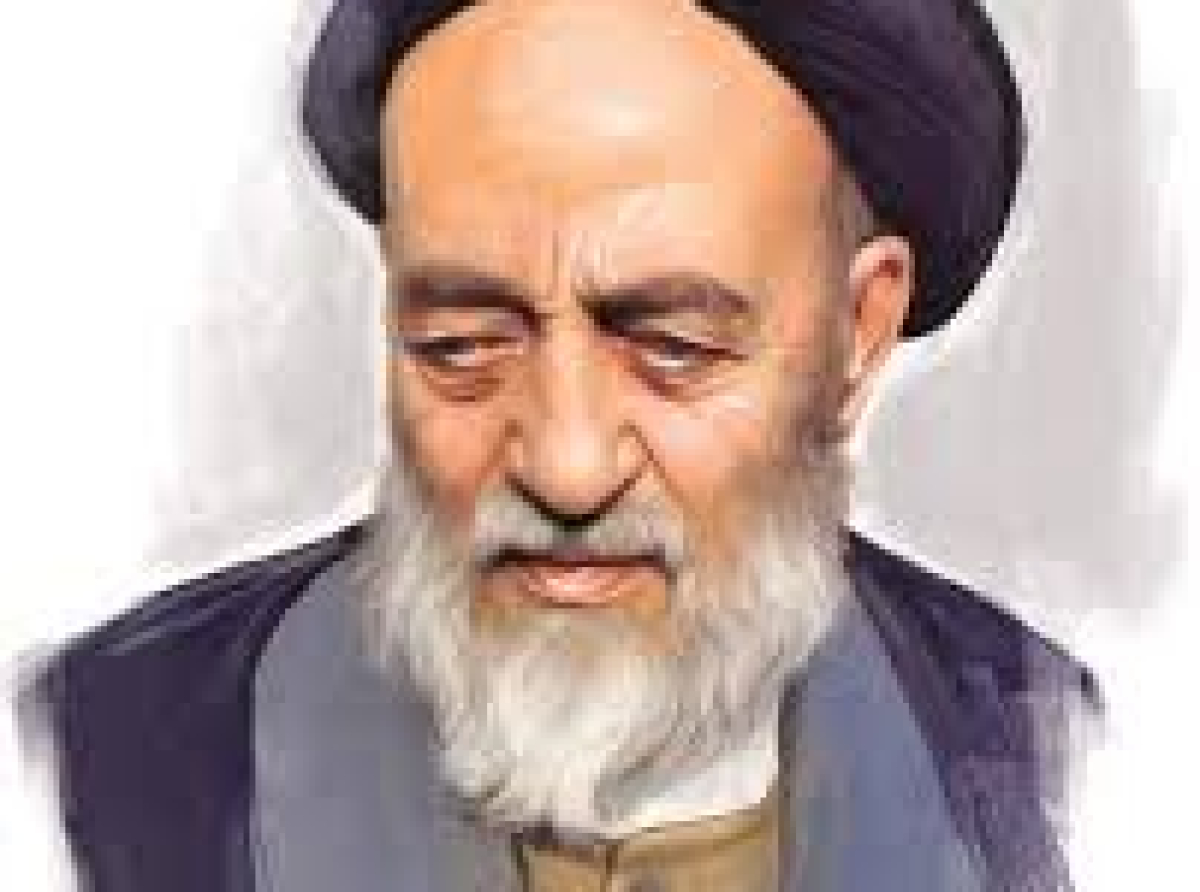Seyyed Muhammad Hossein Tabataba'i, known as Allameh Tabataba'i, is a commentator, philosopher, jurist, and mystic.
He was an influential Shiite scholar (Shiism is one of the Islamic sects) in the intellectual and religious atmosphere of Iran in the 14th century AH (19th century AD).
Instead of studying jurisprudence and principles, he established courses in Quranic interpretation and philosophy at the Qom Seminary. This led to the flourishing of the knowledge of interpretation at the Qom Seminary.
Anthropology is the foundation and axis of Islamic sciences. He wrote numerous works with philosophical and mystical underpinnings, such as "Man Before the World, Man in the World, Man After the World."
He has written independent works, especially on topics such as sociology, political science, law, educational topics, and sometimes psychology, and in "Al-Mizan" he has mentioned detailed topics in the field of humanities.
Allameh Tabataba'i played a very important role in the revival and development of Islamic philosophy. He revived and expanded Islamic philosophy in the academic environment by educating students, explaining Islamic topics philosophically, and communicating with various thinkers..
By teaching and writing philosophical works, Allameh brought Islamic philosophy out of isolation and back into the spotlight.
Allameh, through his commentary on al-Mizan and other works, used philosophical discussions to help understand and explain Islamic teachings.
By educating prominent students such as Martyr Motahari, Allameh played an important role in transmitting his knowledge and philosophical thought to later generations.
During his fifteen-year stay in Qom, he benefited from Seyyed Hossein Tabataba'i and Ruhollah Khomeini for 12 years in philosophy and principles, and Seyyed Mohammad Hossein Tabataba'i.
By establishing contact with various thinkers and experts, Allameh contributed to the dissemination and expansion of Islamic philosophy on a broader level.
In his works, especially in Tafsir al-Mizan, Allameh paid special attention to anthropological issues and the place of man in existence, and examined these issues from a philosophical and mystical perspective. In the field of ethics, he proposed the theory of credentials, which provides a new explanation of moral propositions. By philosophically explaining humanities topics such as sociology, politics, and law, he expanded Islamic philosophy in these areas as well.
Another event in Tabataba'i's intellectual life during his time in Qom was the arrival of Henry Corbin from France to Iran and his meeting with Tabataba'i in Qom and Tehran. These meetings, which led to the formation of an important philosophical circle at that time, were organized through the efforts of Henry Corbin, and many later philosophers of contemporary Iran, along with Corbin, studied philosophy with Tabataba'i and engaged in deep philosophical discussions.
When Corbin came to Iran, he established contact with many Iranian professors. However, Corbin was interested in connecting with professors who dealt with Iranian literature, art, and philosophy, rather than with people who were known as "intellectuals," who were often those who had studied in the West for some time. During this period, Corbin, together with Tabataba'i, formed a philosophical circle in Tehran.
Meetings attended by mostly Iranian professors of philosophy and theology were held in northern Tehran for a long time, and extensive discussions on Shiite philosophy took place there.
Connecting with masters such as Tabataba'i and Seyyed Jalal al-Din Ashtiani was one of the most important events in Corbin's life, because he believed that they were the continuers of the same divine wisdom that has not been extinguished in Iran since ancient times.
In honor of Allameh Tabataba'i's valuable services, November 15 (November 24) has been named Allameh Tabataba'i's Commemoration Day in the Iranian national calendar.
With these actions, Allameh Tabataba'i played a fundamental role in the development and revival of Islamic philosophy and had a profound impact on Islamic and Iranian thought.
translator: fatemeh abbaszadeh.

 En
En  Fa
Fa 